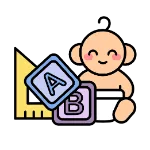
Parenting Techniques
Positive Parenting Techniques For Disciplining Your Child
7 min | Updated on 30-03-2023 by HappyPreggie
Parenting isn't easy, as any new or experienced parent can tell you. Getting things perfect might feel like a master class in patience at times, and it can be quite irritating. Parenting, on the other hand, can be quite satisfying, especially when your child responds to your instructions.

(Image credits to ADDitude)
However, there are many unknowns for first-time parents. What are the best methods to parent a kid in order for them to grow up to be strong, well-adjusted adults? For those of you who are as perplexed as we were, we're here to provide you with all of the necessary knowledge on how to raise your child positively in order to provide them with the finest possible upbringing. Here's all you need to know about positive parenting, without further ado.
Positive parenting is a parenting ideology based on the assumption that children are born good and desires to do the right thing. It highlights the need for mutual respect and the use of constructive discipline methods. Instead of punishing previous misbehavior, good parenting focuses on teaching correct future behavior.
Even though the cause seems silly to the parents, there is always a reason why children misbehave. It's reasonable for the kids, and that's why they act the way they do.

(Image credits to Shutterstock)
Even if the child does not get precisely what they want, if parents can address the problem immediately, the child will feel that their needs are understood. It's frequently more vital to have emotional support from family than it is to get the request fulfilled.
Without the need to misbehave, a child may go on misbehaving. They may still feel irritable, but they don't have to act out in order to be heard. Ask them and get to the bottom of the issue. Active listening and understanding the reasons for problematic behaviors can also assist parents in preventing them in the first place.
Model how to be nice and courteous to others by being kind to your child. Children learn by imitating others, and you are the most important role model for them. When a parent screams, humiliates or calls a child names when they are angry, the kid tends to do the same.

(Image credits to iStock)
Likewise, the opposite applies. When a parent is nice and courteous even when unhappy, the kid learns to handle problems with poise and respect. Being nice can also help a child relax, be more responsive to logic, and comply.
Let's face it: no one loves telling their children what they can and can't do, yet it's necessary for a variety of reasons. One of the most important components of healthy parenting is setting limits with your children. If you set limits, you'll be able to be more patient as a parent and perform a better job since your child will respect and listen to you. When done appropriately, it improves your bond with your child and establishes a healthy power dynamic.
It's not always easy to tell when it's time to create a new limit, but examining your own attitudes and behaviors may frequently reveal a lot. If a situation is starting to irritate or frustrate you, it's time to set some boundaries.
Children require a sense of connection with an adult who will listen to them. This is a good thing since you don't want your child to listen to random strangers telling them what to do.

(Image credit to Freepik)
However, when your child feels bonded to you, they are more inclined to listen to you. This is where the issue with punishment arises. It puts you at odds with your child, weakening your bond and making it less likely that your kid will follow your instructions.
If your child is having trouble with his or her behavior, try to schedule some additional one-on-one time to connect. This does not have to be a long period of time, but it should be done on a regular basis and with intensity. Even 15 minutes of focused, phone-free time with your child each day may strengthen your bond like never before.
Positive parenting aims to strengthen and sustain your bond with your kid while also raising a person who will make a positive contribution to society. Time-out communicates that we are unable to cope with our child's behavior and that we do not want to experience the loud, angry, and messy side of them. It separates you from one another.
Spending time being present with your child, also known as time-in, pulls you closer together. It understands that no matter how bad their conduct is on any given day, all children want to feel loved and accepted by their parents.
The tone sets a lot of the message for positive parenting. You may be strong and have high expectations for your children while yet being caring. Make a list of the rules that are most essential to you, express them to your child, and stick to them. Being a good parent does not imply that you should let your child walk all over you. When your child needs reminders about the rules, it does require attempting to retain a calm, caring tone.

(Image credits to iStock)
Remember that your child isn't awful just because he or she behaves badly. Hugs and beautiful words will follow your discipline, and then you may go on. It's also worth noting that your child's conduct won't change overnight. You're sowing the seeds of discipline, but don't expect it to sprout into a tree overnight.
Before enforcing limits, decide on and fully explain the consequences of breaking them. Parents must also be consistent and follow through on their promises. There will be confusion if a parent is inconsistent. The child may continue to push the boundaries to see what more might happen.
What we consider to be unacceptable behavior is sometimes really age-appropriate behavior. Tantrums among toddlers, for example, are rather common. These young children are filled with strong emotions that they are unable to articulate verbally. They also lack the ability to self-regulate due to a lack of development in that part of the brain. Our child requires our assistance in learning to manage his or her emotions.

(Image credits to HuffPost)
Positive parenting begins with the parent learning about child development and becoming a positive role model for the child. As a result, it might begin as soon as your kid is born. Young children learn through seeing their parents and how they respond in various situations. Paying attention to your child's signals and responding favorably may make a huge impact in their lives. Children who are happy are raised, rather than born.

(Image credits to Stocksy)
Positive parenting is the way to go for parents who want to raise well-adjusted and disciplined children without resorting to outdated and harmful practices like hitting and yelling. With the help of a compassionate parent, your children may learn right from wrong and how to trust their own judgment through positive parenting.
In HappyPreggie we always try to come up with informative topics to help out parents. We hope you liked our article on Positive Parenting Techniques For Disciplining Your Child. To read more articles from us you can check our Guides and Tips section. You can also read- Top 10 Tips For Designing Your Baby's Nursery or How Can I Help My Baby With a Cold?
(Image credits to ADDitude)
However, there are many unknowns for first-time parents. What are the best methods to parent a kid in order for them to grow up to be strong, well-adjusted adults? For those of you who are as perplexed as we were, we're here to provide you with all of the necessary knowledge on how to raise your child positively in order to provide them with the finest possible upbringing. Here's all you need to know about positive parenting, without further ado.
What is Positive Parenting?
Positive parenting is a parenting ideology based on the assumption that children are born good and desires to do the right thing. It highlights the need for mutual respect and the use of constructive discipline methods. Instead of punishing previous misbehavior, good parenting focuses on teaching correct future behavior.
How To Master Positive Parenting
#1 Find out the reason
Even though the cause seems silly to the parents, there is always a reason why children misbehave. It's reasonable for the kids, and that's why they act the way they do.
(Image credits to Shutterstock)
Even if the child does not get precisely what they want, if parents can address the problem immediately, the child will feel that their needs are understood. It's frequently more vital to have emotional support from family than it is to get the request fulfilled.
Without the need to misbehave, a child may go on misbehaving. They may still feel irritable, but they don't have to act out in order to be heard. Ask them and get to the bottom of the issue. Active listening and understanding the reasons for problematic behaviors can also assist parents in preventing them in the first place.
#2 Be kind
Model how to be nice and courteous to others by being kind to your child. Children learn by imitating others, and you are the most important role model for them. When a parent screams, humiliates or calls a child names when they are angry, the kid tends to do the same.
(Image credits to iStock)
Likewise, the opposite applies. When a parent is nice and courteous even when unhappy, the kid learns to handle problems with poise and respect. Being nice can also help a child relax, be more responsive to logic, and comply.
#3 Set boundaries
Let's face it: no one loves telling their children what they can and can't do, yet it's necessary for a variety of reasons. One of the most important components of healthy parenting is setting limits with your children. If you set limits, you'll be able to be more patient as a parent and perform a better job since your child will respect and listen to you. When done appropriately, it improves your bond with your child and establishes a healthy power dynamic.
It's not always easy to tell when it's time to create a new limit, but examining your own attitudes and behaviors may frequently reveal a lot. If a situation is starting to irritate or frustrate you, it's time to set some boundaries.
#4 Build connection to establish a bond
Children require a sense of connection with an adult who will listen to them. This is a good thing since you don't want your child to listen to random strangers telling them what to do.
(Image credit to Freepik)
If your child is having trouble with his or her behavior, try to schedule some additional one-on-one time to connect. This does not have to be a long period of time, but it should be done on a regular basis and with intensity. Even 15 minutes of focused, phone-free time with your child each day may strengthen your bond like never before.
#5 Use time-in, not time-out
Positive parenting aims to strengthen and sustain your bond with your kid while also raising a person who will make a positive contribution to society. Time-out communicates that we are unable to cope with our child's behavior and that we do not want to experience the loud, angry, and messy side of them. It separates you from one another.
Spending time being present with your child, also known as time-in, pulls you closer together. It understands that no matter how bad their conduct is on any given day, all children want to feel loved and accepted by their parents.
#6 Be strong but loving
The tone sets a lot of the message for positive parenting. You may be strong and have high expectations for your children while yet being caring. Make a list of the rules that are most essential to you, express them to your child, and stick to them. Being a good parent does not imply that you should let your child walk all over you. When your child needs reminders about the rules, it does require attempting to retain a calm, caring tone.
(Image credits to iStock)
#7 Remind your child that you love them
Remember that your child isn't awful just because he or she behaves badly. Hugs and beautiful words will follow your discipline, and then you may go on. It's also worth noting that your child's conduct won't change overnight. You're sowing the seeds of discipline, but don't expect it to sprout into a tree overnight.
#8 Be consistent
Before enforcing limits, decide on and fully explain the consequences of breaking them. Parents must also be consistent and follow through on their promises. There will be confusion if a parent is inconsistent. The child may continue to push the boundaries to see what more might happen.
#9 Age-appropriate behavior and brain development
What we consider to be unacceptable behavior is sometimes really age-appropriate behavior. Tantrums among toddlers, for example, are rather common. These young children are filled with strong emotions that they are unable to articulate verbally. They also lack the ability to self-regulate due to a lack of development in that part of the brain. Our child requires our assistance in learning to manage his or her emotions.
(Image credits to HuffPost)
#10 Start early
Positive parenting begins with the parent learning about child development and becoming a positive role model for the child. As a result, it might begin as soon as your kid is born. Young children learn through seeing their parents and how they respond in various situations. Paying attention to your child's signals and responding favorably may make a huge impact in their lives. Children who are happy are raised, rather than born.
(Image credits to Stocksy)
Positive parenting is the way to go for parents who want to raise well-adjusted and disciplined children without resorting to outdated and harmful practices like hitting and yelling. With the help of a compassionate parent, your children may learn right from wrong and how to trust their own judgment through positive parenting.
In HappyPreggie we always try to come up with informative topics to help out parents. We hope you liked our article on Positive Parenting Techniques For Disciplining Your Child. To read more articles from us you can check our Guides and Tips section. You can also read- Top 10 Tips For Designing Your Baby's Nursery or How Can I Help My Baby With a Cold?
Join the largest support network for family health and well-being. Ready to get started?
Get started
















